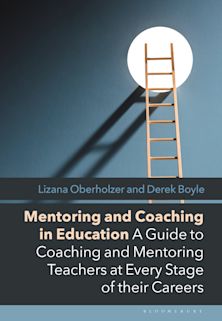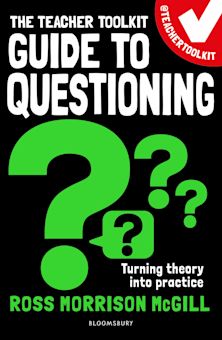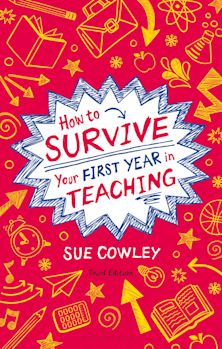- Home
- EDUCATION
- Secondary
- Continuing Professional Development
- Early Childhood and Neuroscience
Early Childhood and Neuroscience
Theory, Research and Implications for Practice
- Textbook
Early Childhood and Neuroscience
Theory, Research and Implications for Practice
- Textbook
Inspection copy added to basket
Choose your preferred format. If you would prefer an ebook and it is not displayed below, please visit our inspection copies page.
Please note ebook inspection copies are fulfilled by VitalSource™.
Buy from Bloomsbury eTextBooks
You are now leaving the Bloomsbury Publishing website. Your eBook purchase will be with our partner https://www.vitalsource.com.
Your credit card statement will show this purchase originating from VitalSource Technologies. They will also provide any technical assistance you might require.
You must sign in to add this item to your wishlist. Please sign in or create an account
Description
Highly Commended: Nursery World Awards 2017 Professional Book of the Year
Early Childhood and Neuroscience is a practical guide to understanding the complex and challenging subject of neuroscience and its use (and misapplication) in early childhood policy and practice.
The author begins by introducing the definition and history of neuroscience. The reader is then led through structured chapters discussing questions such as: Why should practitioners know about neuroscience? How can neuroscience help practitioners better provide for babies and children? and Is it relevant? Topics covered include the nature vs. nurture debate through the lens of neuroscience, epigenetics, the first 1001 days and a discussion on just how critical the first three years of life are to healthy brain development. The book provides a balanced overview of the debates by weaving discussion on the opportunities of using neuroscience in early childhood practice with examination of the limitations and ethical implications throughout the chapters. This enables students to inform their own opinions about the discipline and its use in their future practice.
Clear explanations of the main terms and theories are complemented with illustrative case studies of cutting-edge research from around the world, a glossary of key terms and suggestions for further reading. Reflective discussion questions give students the chance to apply their theoretical knowledge to real-world contexts. These features encourage and support independent critical thinking, helping students to reflect on, evaluate and analyse a range of ideas, research findings and applications for their own future
early childhood practice.
Early Childhood and Neuroscience is essential reading for lecturers, undergraduate and postgraduate students in the field as well as for the new practitioner.
Table of Contents
Foreword: Relating the Miracle of Young Life to Mysteries of the Growing Brain Colwyn Trevarthen, Emeritus Professor, University of Edinburgh, UK
Acknowledgements
Introduction: What To Expect and What Not To Expect From This Book
1. Neuroscience: What Is it?
2. Why Should Early Childhood Practitioners Know About Neuroscience?
3. Emotional Well-being: How Can We Help to Build Healthy Brains?
4. Children's Language and Communication Development: What Can Neuroscience Tell Us?
5. Beyond Nature Versus Nurture: Is Neuroscience Relevant to the Debate?
6. Conclusions and Recommendations: Where Do We Go From Here?
Glossary of Terms
Bibliography
Index
Product details

| Published | 12 Jan 2017 |
|---|---|
| Format | Ebook (PDF) |
| Edition | 1st |
| Extent | 192 |
| ISBN | 9781474231923 |
| Imprint | Bloomsbury Academic |
| Illustrations | 13 bw illus |
| Publisher | Bloomsbury Publishing |
About the contributors
Reviews
-
This practical guide translates the complex subject of neuroscience ... and distils its implications for practice.
Nursery World
-
I especially enjoyed the myth-busting sections found throughout the book. I thought this was an excellent addition for readers without a neuroscience background ... I think Early Childhood and Neuroscience offers an excellent summary of a variety of topics for a wide range of readers.
The Psychologist
-
A FABULOUS addition to my bookshelf. I've recommended to all my students (who are scrambling to buy a copy). A long overdue look at childhood from an evidence-based neuroscience perspective, no pseudoscience, no hype, AND an enjoyable read. [Mine Conkbayir is] my new hero!
Sarah McKay, founder of The Neuroscience Academy, Australia
-
The neuroscience of early childhood development is advancing with unprecedented speed, and early childhood caretakers and educators need a source to support them in understanding and distilling the new findings into usable knowledge for practice. Conkbayir's readable book nicely accomplishes this goal. It will be a handy addition to educators' toolkits.
Mary Helen Immordino-Yang, Associate Professor of Education, Psychology and Neuroscience, Brain and Creativity Institute, Rossier School of Education, University of Southern California, USA
-
This book offers a new perspective on the developing child and links to new and traditional theories of child development. It shines a much needed spotlight on development of our very youngest children, including what happens in the womb. The combination of theory and practice makes this a very accessible and relevant book for Early Childhood students and practitioners.
Helen Perkins, Senior Lecturer, Childhood and Family Studies, Faculty of Education, Health and Wellbeing, University of Wolverhampton, UK
-
This book is a valuable addition to the academic study of Early Childhood and early years practice. The author engages the reader in a journey to support how a critical understanding of neuroscience is vital in our work.
Eunice Lumsden, Head of Early Years, The University of Northampton, UK


































